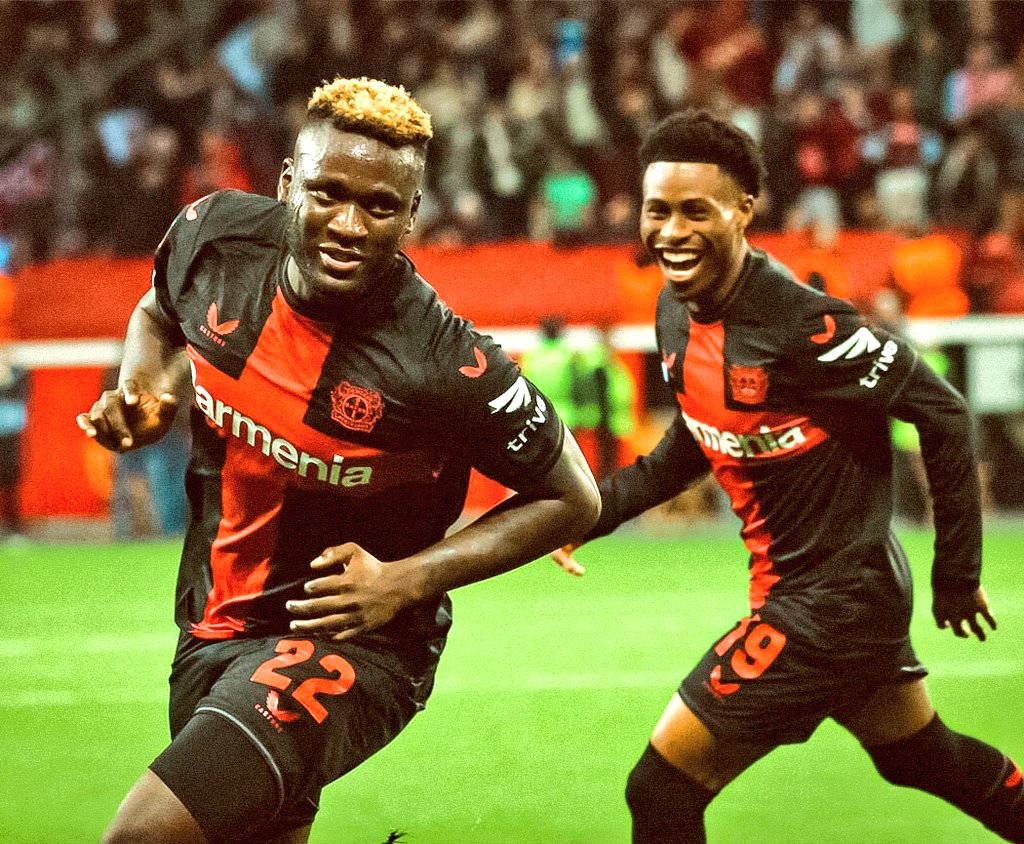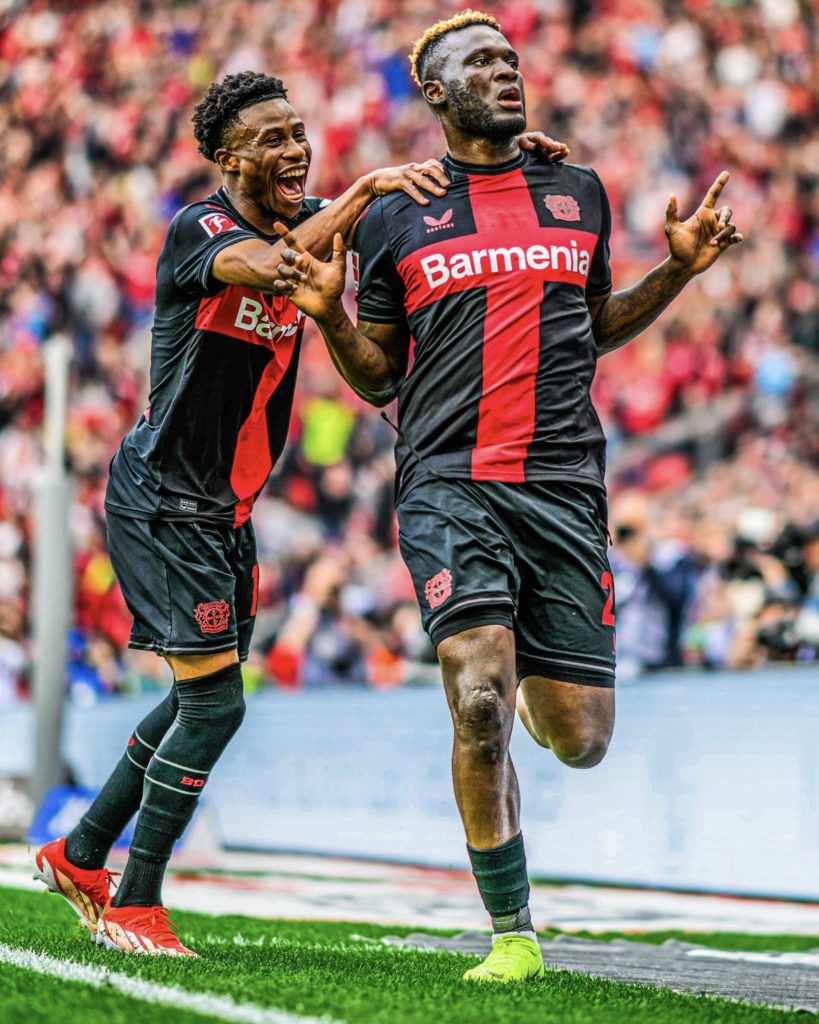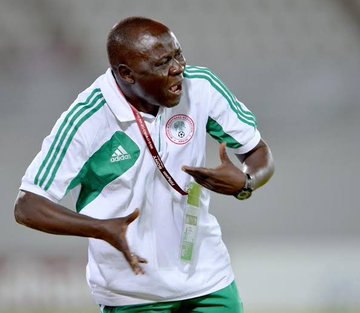[Flashback] Yisa Sofoluwe: Day I lost penalty and how Peter Rufai saved Eagles at Maroc ’88
Biodata
Full Name: Yisa Sofoluwe
Date of Birth: 28th December, 1967
Nicknames: Dean of Defence
Start of Football Career: 1982
Clubsides Played For: ITT Lagos 1982-83; Abiola Babes, Abeokuta 1984-87; Julius Berger, Lagos 1988; Winterslag (Belgium) 1988-89; RFC Namur (Belgium) 1990-92; Royal Union Hutoise (Belgium) 1993-94; RFC Lessine (Belgium) 1994-96
Club Honours Won: Nigeria FA Cup gold 1985 & 1987; Nigeria FA Cup silver 1984 & 1986
National Team Honours: Tesema Cup 1983, West African Cup (Shagari Cup) 1985, African Cup of Nations silver 1984 & 1988.
Start of National Team Career: 1983
Opponents/Event: Morocco (0-0) 1984 Africa Cup of Nations final round qualifiers, return-leg)
First Nations Cup Appearance: 1984 Africa Cup of Nations in Cote d’Ivoire.
IVORY COAST ’84
![[Flashback] Yisa Sofoluwe: Day I lost penalty and how Peter Rufai saved Eagles at Maroc '88 3 [Flashback] Yisa Sofoluwe: Day I lost penalty and how Peter Rufai saved Eagles at Maroc '88 3](https://naijasuperfans.com/wp-content/uploads/2021/02/CAN_1984_logo.png)
The Green Eagles were just a game away from qualifying for the 1984 Africa Nations Cup when I made my national team debut against the Atlas Lions of Morocco in the last quarter of 1983.
Morocco had forced us to a goalless draw in the first-leg played in Benin. For the return-leg, the handlers of the national team, coaches Adegboye Onigbinde and James Peters drafted in about eight of us that had taken part in that year’s FIFA Under-20 World Youth Championship in Mexico. The list included myself, Chibuzor Ehilegbu, Tajudeen Disu, Paul Ekoku, Wilfred Agbonavbare, Ademola Adeshina, Humphrey Edobor and Tarila Okorowanta, who was our most talented player. Tarila also became the most stubborn player in camp by the time we got to Cote d’Ivoire for the Nations Cup.
To qualify however, we needed first to get a result against the Moroccans in Casablanca since the first leg ended goalless in Nigeria. So the coaches took us to the Bembo Games Village in Ibadan where we camped ahead of the crucial return-leg and where we were watched over by a military camp commandant.
Nobody gave us any chance against Morocco but we surprised everyone with our gutsy display in Casablanca. We played out an impressive goalless draw before Peter Rufai came to our rescue in the ensuing penalty shoot-out to secure our passage to the Nations Cup – my first Nations Cup.
PREPARATION AND SQUAD SELECTION
For the tournament proper, we were taken to Spain where we prepared for a full month before boarding an Iberia Airline that took us to Abidjan for the Nations Cup. But our time in Spain was anything but a holiday because we were put through a very strict training regimen.
We did a lot of road running and cross-country running and the coaches didn’t give any room for laxity because the painful memories of our previous Nations Cup outing in Libya, where we failed to make it past the group stage, was still fresh.
Coach Onigbinde, in particular, wanted all of us to give one hundred percent at each training session and this made our sessions to have a competitive edge so much so that some of us picked up varying degrees of injuries. Luckily though none of the injuries was so bad as to keep anyone away from training beyond a day or two.
We played about five tune-up games against some Spanish first and second division outfits, losing just once before heading out to Cote d’Ivoire for the Nations Cup.
THE TOURNAMENT
![[Flashback] Yisa Sofoluwe: Day I lost penalty and how Peter Rufai saved Eagles at Maroc '88 4 [Flashback] Yisa Sofoluwe: Day I lost penalty and how Peter Rufai saved Eagles at Maroc '88 4](https://naijasuperfans.com/wp-content/uploads/2021/02/dopsymcqje8u9nwf1juq-01-300x217.jpeg)
On getting to Abidjan we were flown to Bouake where we’d been grouped alongside Algeria, Malawi and our arch-rivals Ghana for the first round of matches.
A few months earlier, we had beaten the Ghanaians 2-1 in Accra and they wanted revenge when we came up against them at the Bouake Municipal Stadium in our opening match which I almost missed.
All along, I had been battling with malaria which kept me out of rigorous training for more than two weeks and everyone assumed I was going to miss the game against the Ghanaians. But I trained privately on my own whenever the rest of the team had gone for practice and everyone was pleasantly surprised when the coaches included me in the starting line-up after I passed a late fitness test.
Our coaches took match and physical fitness very seriously and if one lacked any of these, then there was no way he would play. I remember there was a time our captain, Stephen Keshi was overweight and he was mandated to stay behind after our sessions to do extra training and he agreed with the coaches. Keshi was a leader both on and off the pitch and everyone of us loved him for his exemplary leadership.
When Keshi led us onto the pitch against the Ghanaians for our opening game, not many people at the stadium thought we were capable of repeating our recent feat against the then defending champions.
Henry Nwosu put us ahead very early in the game but Opoku Nti equalized almost immediately before Chibuzor Ehilegbu restored our lead and gave us a 2-1 win. At the final whistle, Nigerians residing in Cote d’Ivoire were very happy and celebrated on the streets of Bouake while the Nigerian Ambassador to that country played host to us.
Three days later we came up against Malawi, who had lost 3-0 to Algeria in their opening match. But they surprised us by racing into a two-goal lead before Clement Temile saved us with two brilliant goals. The match ended 2-2.
The Algerians also beat the Ghanaians so all we had to do to qualify for the semi-final was to avoid a defeat in our last group match which we achieved by playing a goalless draw with Algeria in Bouake.
We then had to relocate to Abidjan for our semi-final game against Egypt at the Houphouet Boigny Stadium but before we could settle down in the game they had gone 2-0 up. We fought back gallantly and Keshi pulled a goal back at the end of the first-half before Ali Baba equalized towards the end of the match.
We then played a scoreless extra-time before Peter Rufai came to our rescue again in the resultant penalty shoot-out. He however got injured and was not in goal when we met Cameroun in the final four days later.
![[Flashback] Yisa Sofoluwe: Day I lost penalty and how Peter Rufai saved Eagles at Maroc '88 5 [Flashback] Yisa Sofoluwe: Day I lost penalty and how Peter Rufai saved Eagles at Maroc '88 5](https://naijasuperfans.com/wp-content/uploads/2021/02/KESHI-300x169.jpg)
Although Cameroun lost to Egypt in their opening match, they went on to comprehensively beat Togo and the host nation, and were by far the best team in the competition with a squad that had only two years earlier finished unbeaten at the FIFA World Cup finals in Spain.
All their prominent players – Roger Milla, Theophilus Abega, Djonkep Bonaventure and Antoine Bell – were still very much around and nobody gave our young and inexperienced side a chance against them.
The only player in our team who had as much experience as the Cameroonians was Muda Lawal. And when he opened scoring for us we actually felt we were going to repeat what we did to the Ghanaians and the Egyptians.
But as much as we tried, our inexperience was obvious because they equalized in the first-half before scoring two more goals in the last 10 minutes of the match to win the Cup.
AFTERMATH
We weren’t too disappointed by the outcome because we never thought we were capable of going all the way to the final with such a young squad in the first place. Everyone back home was happy with our performance. Even the media was full of praise for us but there wasn’t anything elaborate from the military regime of General Muhamadu Buhari.
Anyway, everything was soon forgotten after we failed to qualify for the 1984 Los Angeles Olympic Games following our loss to Morocco.
MAROC ’88
![[Flashback] Yisa Sofoluwe: Day I lost penalty and how Peter Rufai saved Eagles at Maroc '88 6 [Flashback] Yisa Sofoluwe: Day I lost penalty and how Peter Rufai saved Eagles at Maroc '88 6](https://naijasuperfans.com/wp-content/uploads/2021/02/CAN_1988_logo.png)
(PREPARATION AND SQUAD SELECTION)
We returned to Spain to prepare for the 1988 Cup of Nations, four years after camping there for the 1984 tournament. In charge this time around was a German coach, Manfred Hoener who was assisted by coaches Paul Hamilton and Ganiyu Salami.
We were camped at a location about one hour’s drive from Madrid and we were there for close to a month under supervision of the German who most of the time communicated with us via the help of an interpreter as his basic English lacked depth. However, his English improved as the months went by.
The camp itself was akin to a military camp. We would get up by 6am and by 7am we would hit the road. By 8.30am we would train on the pitch for two hours before returning in the afternoon, around 12.30pm for more work on the pitch. Then, between 3.30pm and 5.30pm we would have the last session for the day. We went on like that for the first two weeks after our arrival before the intensity was reduced.
In-between training we went on sight-seeing and one memory that lingers to date was our visit to the Estadio Santiago Bernabeu, the home ground of the great Real Madrid Football Club.
We also got to test our might against some Spanish clubsides. In all we played six matches, winning four, drawing one and losing one before heading off across the Mediterranean to nearby Morocco on Iberia Airlines.
THE TOURNAMENT
At the tournament we played our group phase matches at the Moulay Abdullahi Stadium, in Rabat. Our first opponents were Kenya whom we beat 3-0 with first-half goals from Rashidi Yekini, my close friend Humphrey Edobor and Ndubuisi Okosieme.
![[Flashback] Yisa Sofoluwe: Day I lost penalty and how Peter Rufai saved Eagles at Maroc '88 7 [Flashback] Yisa Sofoluwe: Day I lost penalty and how Peter Rufai saved Eagles at Maroc '88 7](https://naijasuperfans.com/wp-content/uploads/2021/02/kunde1-300x224.png)
Morocco playing in the other group had been forced to a surprise 1-1 draw by Zaire in the opening match of the tournament a day earlier in Rabat. We saw that game and coach Manfred Hoener warned us against underestimating the Kenyans so we went all out for the kill because we didn’t want to be upset by the tournament’s weakest side.
Three days later we came up against Cameroun who still had Antoine Bell in goal, and the wily old fox, Roger Milla, spearheading their attack. A lot of us like my room-mate Ademola Adeshina, Stephen Keshi, Henry Nwosu, Sunday Eboigbe, Rashidi Yekini and myself were in that young Green Eagles team that lost to Cameroun four years earlier in Cote d’Ivoire so we were all spoiling for revenge.
We actually took the lead with our first attack through a rocket of a shot from Samuel Okwaraji. But our lead lasted barely 20 minutes before Milla equalized. The match ended 1-1 but we were by far the better side on the day.
In our final group game, we played a goalless draw with Egypt and finished ahead of the Camerounians, who could only manage a scoreless draw against the unfancied Kenyans. As a result, we avoided a semi-final date with the host country, Morocco. But we still had to beat Algeria if we were to advance to the final.
THE EPIC SEMI FINAL BATTLE
The Desert Warriors still revolved around most of the players that had dominated African football in the previous four to six years like Lakhdar Bellounmi, Forghil Megharia and Rabar Madjer.
They had eliminated us from the 1982 World Cup before I joined the national team, so we knew they would be difficult. We were determined not to lose and we shot into the lead very close to the end of the first-half courtesy of an Algeria own-goal.
We defended that lead until the last five minutes when they equalized. The match then went into penalties where I surprisingly lost my kick. I always scored from the penalty spot in training. Our goalkeeper, Peter Rufai never stopped any of my kicks but when I came up against the Algerian goalkeeper, Nasir Drid, I missed. I missed because I played with hard studs in my boots instead of my more accustomed soft studs due to the condition of the pitch in Casablanca.
![[Flashback] Yisa Sofoluwe: Day I lost penalty and how Peter Rufai saved Eagles at Maroc '88 8 [Flashback] Yisa Sofoluwe: Day I lost penalty and how Peter Rufai saved Eagles at Maroc '88 8](https://naijasuperfans.com/wp-content/uploads/2021/02/Screenshot_2021-02-18-08-54-14-01-300x260.jpeg)
Luckily for me, though, Rufai saved the day for us with a brilliant catch of the Algerian last kick after a marathon shootout that lasted about 18 kicks, nine from each side. We celebrated late into the night at the hotel before getting ready for the final.
Our old nemesis Cameroun were our opponents in the final at the Mohammed V Stadium in Casablanca. After losing to them in the 1984 final, we were determined to get a revenge but they beat us again 1-0 with an Emmanuel Kunde penalty after Sunday Egboigbe brought Roger Milla down in the penalty area. It was a deserved penalty but Henry Nwosu had earlier scored for us a beautiful goal that was surprisingly ruled out by the Senegalese referee.
![[Flashback] Yisa Sofoluwe: Day I lost penalty and how Peter Rufai saved Eagles at Maroc '88 9 [Flashback] Yisa Sofoluwe: Day I lost penalty and how Peter Rufai saved Eagles at Maroc '88 9](https://naijasuperfans.com/wp-content/uploads/2021/02/Screenshot_2021-02-18-09-05-03-01-300x222.jpeg)
Even the Crown Prince of Morocco, who was the special guest of honor, told us during the medal presentation of his disappointment over that decision because he rooted for us in that match, just like every Moroccan at the stadium, because the Camerounians had eliminated them in the semi-finals.
THE AFTERMATH
The defeat in the final notwithstanding, we held our heads high and returned home to a heroes’ welcome. Everyone was apparently happy with our performance and we were rechristened “Super Eagles” by the then military vice president Admiral Augustus Aikhomu.
Thereafter, we were all looking forward to the 1988 Olympic Games in Seoul, South Korea, but Manfred Hoener had his plans and decided to drop most of the players that went to the Nations Cup including myself, from the Olympic team.
At the end of the day we were beaten by Brazil, Yugoslavia and Australia in Seoul. Hoener refused to return with the rest of the squad to Nigeria and that was the end of his tenure with the national team.
THE 1984 SQUAD
GOALKEEPERS: Patrick Okala (Rangers, Enugu), Peter Rufai (Stores, Lagos).
DEFENDERS: Kingsley Paul (BCC, Gboko), Stephen Keshi (cpt) (NNB, Benin), Sunday Eboigbe (NNB, Benin), Yisa Sofoluwe (Abiola, Abeokuta), Ibrahim Mohammed (Polytechnic, Kaduna), Anthony Edwards (Water Corp, Ibadan), John Benson (Leventis, Ibadan).
MIDFIELDERS: Muda Lawal (IICC, Ibadan), Chibuzor Ehilegbu (Leventis, Ibadan); Henry Nwosu (NNB, Benin), Ademola Adeshina (IICC, Ibadan), Paul Okoku (Leventis, Ibadan).
FORWARDS: Clement Temile (NNPC, Warri), Taiwo Ogunjobi (IICC, Ibadan); Rashidi Yekini (IICC, Ibadan); Humphrey Edobor (NNB, Benin), Bala Ali (Standard, Jos); Tarila Okorowanta (Insurance, Benin); James Etokebe (Leventis, Ibadan).
COACH: Adegboye Onigbinde, Paul Hamilton, Ganiyu Salami, James Peters
This article first appeared in the Complete Football magazine AFCON Special edition 2008

![[Flashback] Yisa Sofoluwe: Day I lost penalty and how Peter Rufai saved Eagles at Maroc '88 2 [Flashback] Yisa Sofoluwe: Day I lost penalty and how Peter Rufai saved Eagles at Maroc '88 2](https://naijasuperfans.com/wp-content/uploads/2021/02/FB_IMG_1613637131684-03.jpeg)













